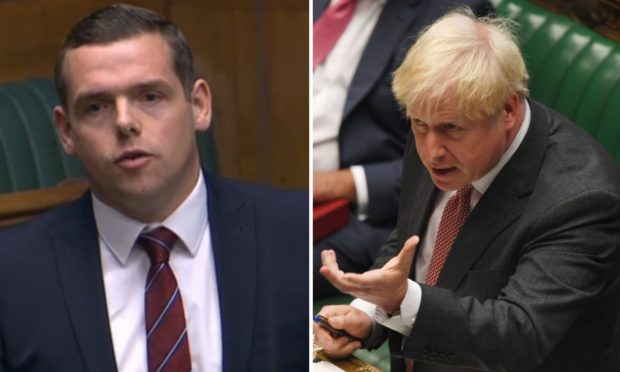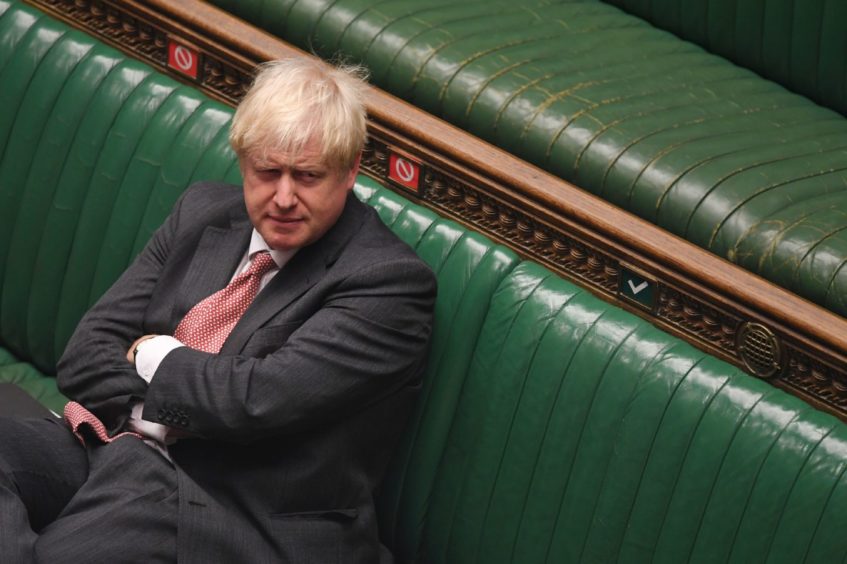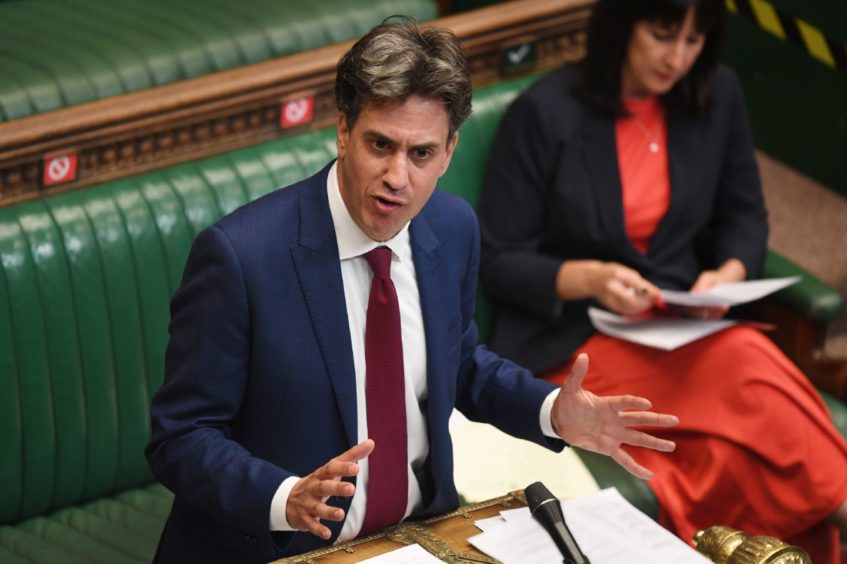Scottish Tory leader Douglas Ross has been branded “spineless” after backing Boris Johnson’s plans to break international law.
The Moray MP said he was supporting the Internal Market Bill, which cleared its first parliamentary hurdle in the Commons on Monday night, because it would protect jobs in Scotland.
But the SNP said the legislation showed the UK had become a “rogue state” and undermined the devolution settlement.
The prime minister justified the move by arguing the European Union was being “extreme” and “unreasonable” in trade talks, suggesting Brussels was willing to use tariffs to “blockade food and agricultural transports within our own country”.
He told MPs the behaviour of the EU necessitated the need for an “insurance policy” in the form of the Internal Market Bill.
The Bill allows UK ministers to override provisions in the withdrawal agreement governing the customs relationship between Great Britain and Northern Ireland.
Mr Johnson said: “I understand how some people will feel unease over the use of these powers, and I share that sentiment myself.
“I have absolutely no desire to use these measures. They are an insurance policy and, if we reach agreement with our European friends, they will never be invoked.”
Mr Johnson said the EU had threatened to impose tariffs on all goods moving to Northern Ireland.
“That would mean tariffs could get as high as 90% by value on Scottish beef going to Northern Ireland moving not from Stranraer to Dublin, but from Stranraer to Belfast, within our United Kingdom,” he said.
‘A question of honour’
His arguments have been roundly rejected by a slew of Tory grandees and opposition MPs. All living former prime ministers have also voiced concern.
Former chancellor Sajid Javid said he would not back the Bill, adding: “Breaking international law is a step that should never be taken lightly.”
Geoffrey Cox, Mr Johnson’s attorney general when the withdrawal agreement was signed, said breaking international law would damage the UK’s standing.
“It is also a question of honour to me – we signed up, we knew what we were signing,” he said.
In the Commons, Labour’s business spokesman Ed Miliband said the Bill was an act of “legislative hooliganism” that would “trash the reputation of this country and trash the reputation of his (Mr Johnson’s) office”.
He said: “The prime minister is coming to the House to tell us today that his flagship achievement, the deal he told us was a triumph, the deal he said was oven ready, the deal on which he fought and won the general election is now contradictory and ambiguous.
“What incompetence. What failure of governance. And how dare he try and blame everyone else.
“There’s only one person responsible for it, and that is him. This is his deal, it’s his mess, it’s his failure.”
It is not clear to me why it is necessary for the UK to break international law. I am regretfully unable to support the UK Internal Market Bill unamended. pic.twitter.com/ID0CeyXCeJ
— Sajid Javid (@sajidjavid) September 14, 2020
There was also opposition to a controversial clause within the Bill that gives Westminster the power to spend in devolved areas.
It is there to replace EU structural funds and will allow London to invest in water, electricity, gas, telecommunications, sewerage, railway facilities, roads or other transport facilities, health, educational, cultural or sports facilities and court or prison facilities and housing in Scotland.
‘Utterly spineless’
Inverness MP Drew Hendry said the clause amounted to “a premeditated move to put devolution to the sword”.
The SNP took specific aim at the six Scottish Tory MPs backing the Bill, branding them “spineless”.
The party’s deputy Leader Kirsten Oswald said: “By voting for Johnson’s naked power grab on the Scottish Parliament, the Scottish Tories are demonstrating yet again that they are utterly spineless and incapable of acting in Scotland’s interests.”
‘Safety net’
Scottish Tory leader Douglas Ross defended the Bill, saying: “It is essential to protect the 545,000 jobs in Scotland that rely on UK trade, and ensure the unrestricted movement of goods across this country.
“Putting half a million jobs at risk in the middle of a pandemic is not an option, so I am voting for the Bill at this stage to make sure that safety net for Scottish jobs is there.”


